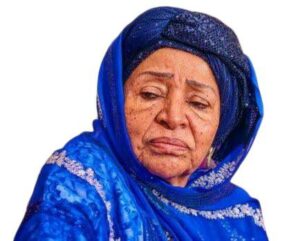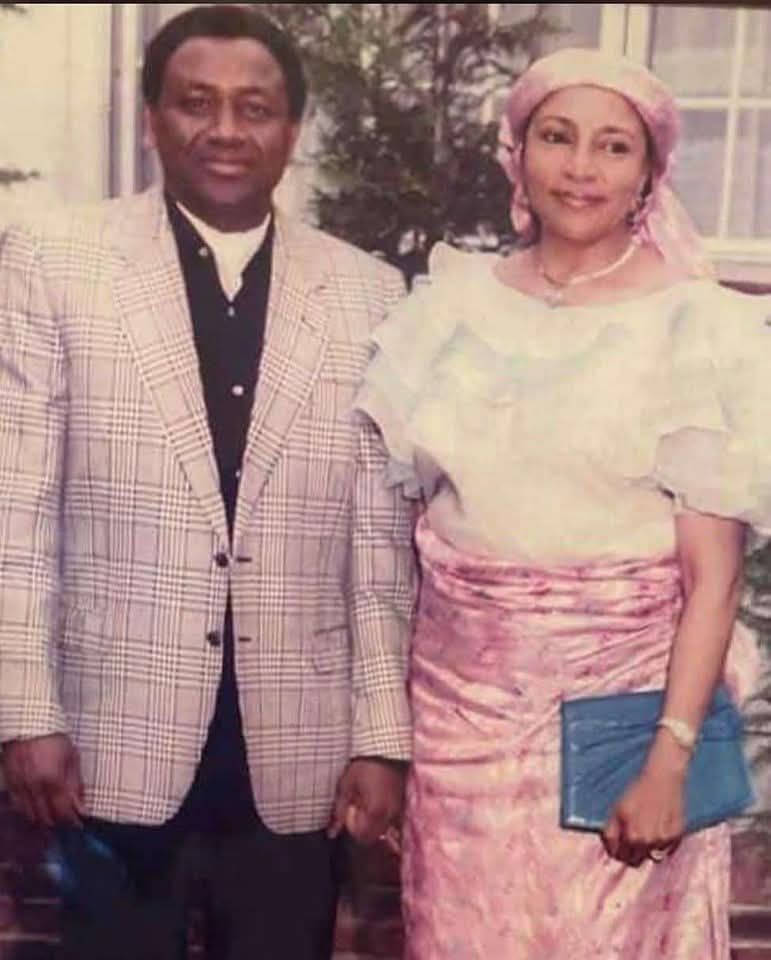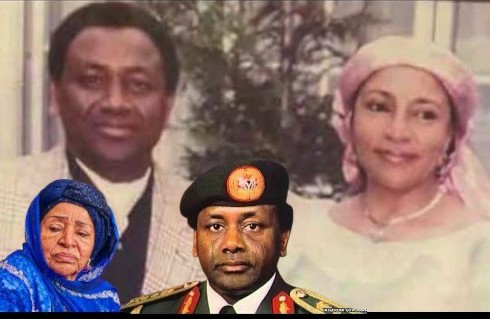
Maryam Abacha, born Maryam Jidah, hails from Borno in northeastern Nigeria. Raised in a disciplined Muslim household steeped in Kanuri traditions, she grew up with strong values of family, respect for authority, and community service—principles that would later define her public role.
Her path crossed with that of Sani Abacha when he was an ambitious young officer in the Nigerian Army. The pair married in 1965, beginning a lifelong partnership deeply rooted in loyalty and shared purpose. As Abacha’s military career advanced, Maryam stood by his side, adapting to the demands of military life and frequent relocations.

When General Abacha assumed power in November 1993 and became Nigeria’s Head of State, Maryam stepped into the role of First Lady with intention and visibility. Far from a passive figure, she used her platform to champion social welfare causes. Her signature initiative, the Family Support Programme (FSP), aimed to uplift women, children, and underserved communities. Through this, mobile health clinics reached remote regions, and she became a vocal advocate for girls’ education.
She also pioneered the Family Economic Advancement Programme (FEAP), a bold effort to fight poverty through microfinance and local entrepreneurship. One of her lasting contributions was her role in initiating the construction of the National Hospital in Abuja in 1996, a landmark project in Nigeria’s healthcare system.

Despite the heavy shadows cast by her husband’s regime — widely criticized for corruption and human rights abuses — Maryam carved out a separate identity marked by poise, purpose, and resilience. In the northern region and among her supporters, she was revered as a strong matriarch during uncertain times.
Her bond with Sani Abacha was both intimate and enduring. Together, they had ten children, and by many accounts, she was his most trusted adviser, often influencing decisions behind the scenes.
When General Abacha died suddenly on June 8, 1998, Maryam entered a period of profound personal and national mourning. In the years that followed, she largely withdrew from public life, choosing instead to focus on her family. Yet she occasionally emerged to defend her late husband’s legacy, maintaining that his intentions for Nigeria were misunderstood and misrepresented.
Today, Maryam Abacha remains one of Nigeria’s most prominent and complex First Ladies — remembered for her elegance, influence, and enduring impact at the crossroads of power, philanthropy, and controversy.











